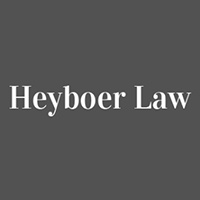Sandusky Collection Lawyer, Michigan
Sponsored Law Firm
-
 x
x

Click For More Info:
-
Marrs & Terry, PLLC
6553 Jackson Road Ann Arbor, MI 48103» view mapBankruptcy & Debt Personalized, Efficient Counsel
Marrs & Terry, PLLC have been helping individuals face a variety of legal challenges, including bankruptcy, estate planning and administration, and family law.
800-862-7221
Not enough matches for Sandusky Collection lawyer.
Below are all Sandusky Bankruptcy & Debt lawyers.
David R. Heyboer
✓ VERIFIEDCriminal, DUI-DWI, Bankruptcy & Debt, Personal Injury, Real Estate
When you've been arrested and facing criminal charges, there can be serious consequences for you and your family. Don't face your criminal charges alo... (more)
Nathan Paul Fuglestad
Real Estate, Bankruptcy & Debt, Personal Injury, Trusts
Status: In Good Standing Licensed: 33 Years
Andrew R. Lockard
Estate, Family Law, Criminal, Credit & Debt
Status: In Good Standing Licensed: 21 Years
Peter L. Conway
Business, Bankruptcy & Debt, Real Estate, Estate, Divorce & Family Law
Status: In Good Standing Licensed: 51 Years
Mark A. Leichliter
Estate Planning, Employee Rights, Elder Law, Consumer Bankruptcy
Status: In Good Standing Licensed: 16 Years
Michael G. Boucher
Medical Products & Devices, Divorce, Bankruptcy, Personal Injury
Status: In Good Standing
Jill L. Schmidt
Real Estate, Divorce & Family Law, Criminal, Bankruptcy & Debt
Status: In Good Standing Licensed: 29 Years
Pamela E. Stefan
Divorce, Elder Law, Contract, Collection
Status: In Good Standing Licensed: 34 Years


 Tricia Terry Ann Arbor, MI
Tricia Terry Ann Arbor, MI AboutExperienced Michigan Lawyer
AboutExperienced Michigan Lawyer Articles
Articles

